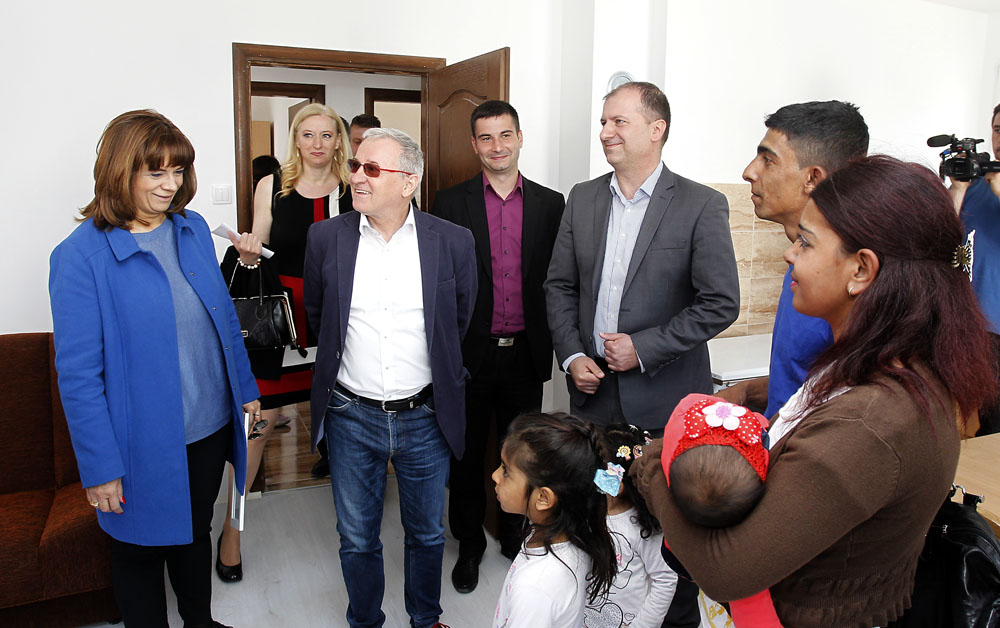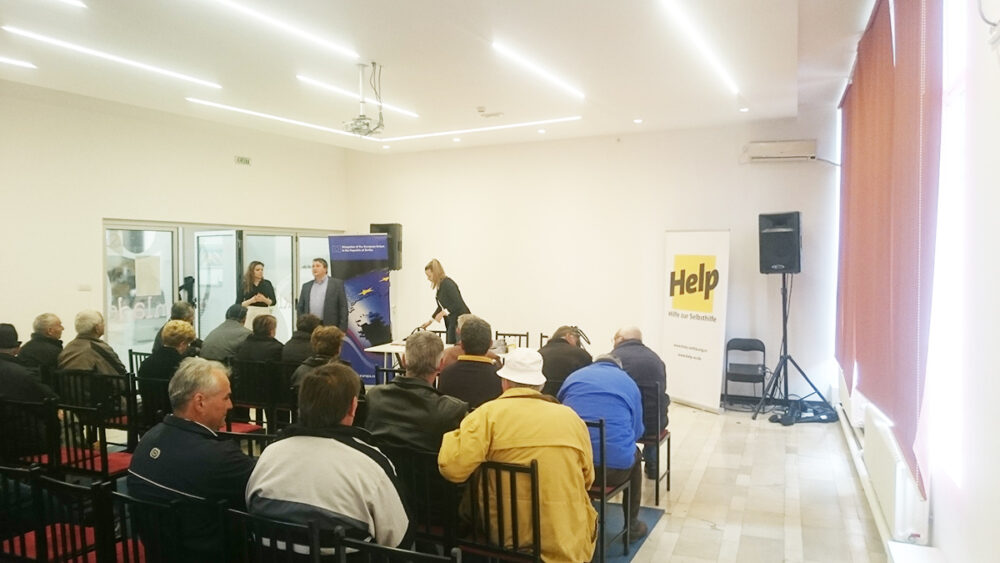New beneficiaries to the eu flood relief programme in Obrenovac
Within the European Union Assistance for Flood Relief in Serbia Programme 2nd phase support to the Republic of Serbia in flood prevention, protection and recovery
Help signed additional grant contracts with beneficiaries for a reconstruction of 25 homes in Obrenovac on 20th February 2017. On behalf of the Municipality the signing was attended by Mr. Aleksandar Pantelic, the Town Council Member.
In the second phase of the EU programme Help already reconstructed 187 homes, delivered 123 in-kind grants to micro and small businesses and agriculture households in Obrenovac. There are also ongoing works on 8 prefabricated houses in Obrenovac that will also be equipped with basic furniture and appliances.
Economic recovery of micro and small businesses affected by the floods and their revival in addition to the in-kind grants was supported with the tailor-made business lecturing, mentoring and study visits to further facilitate their income generating activities restoration.
The European Union Assistance for Flood Relief in Serbia programme is a 78-million Euros Programme funded by the European Union. The overall objective of this action is to contribute to the efforts of the Government of Serbia to support the municipalities to restore living and working conditions, through the construction of new homes, the reconstruction of public institutions, private homes and roads and the revival of economy and agriculture in 43 municipalities hit hardest by the floods: Aleksinac, Arandjelovac, Bajina Basta, Boljevac, Gornji Milanovac, Ivanjica, Jagodina, Kladovo, Knic, Knjazevac, Koceljeva, Kosjeric, Kovacica, Kraljevo, Krupanj, Lazarevac, Loznica, Majdanpek, Mali Zvornik, Medvedja, Negotin, Novi Beograd, Obrenovac, Osecina, Paracin, Pozega, Sjenica, Smederevska Palanka, Surdulica, Svilajnac, Svrljig, Sabac, Sid, Ub, Uzice, Valjevo, Vladicin Han and Zajecar.
Seven partners are implementing the Programme – the United Nations Office for Project Services (UNOPS), the United Nations Organization for Food and Agriculture (FAO), the Austrian Development Agency (ADA), the World Bank (WB), the Hilfe zur Selbsthilfe e.V (Help), Arbeiter-Samariter-Bund Deutschland e.V (ASB) and the Danish Refugee Council (DRC) – in cooperation with the Government of Serbia’s Office for Public Investment Management (PIMO) and the European Integration Office (SEIO).


 ';
';